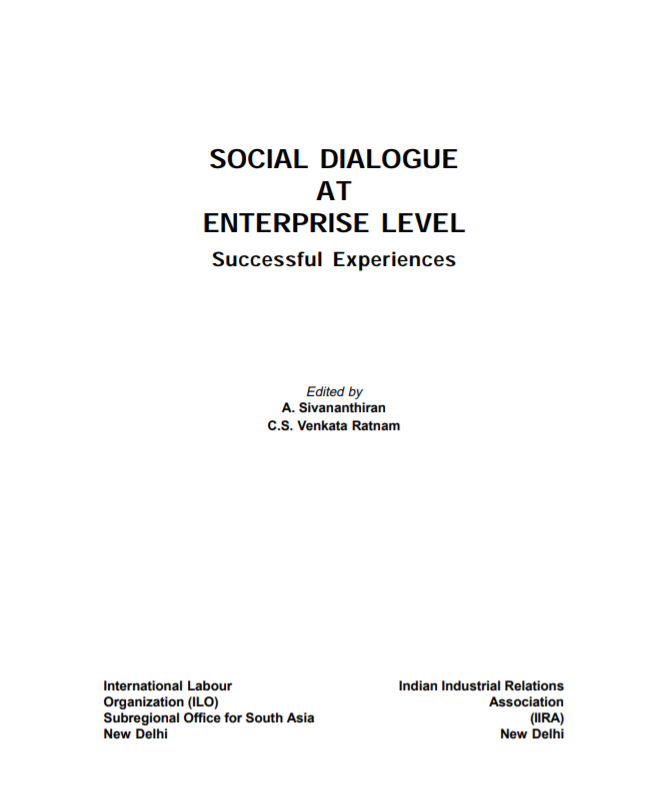One of the main challenges that Asian countries are facing, and will continue to face in the coming years, is the need to adjust their economic and social systems in accordance with the process of globalization. This process cannot be managed equitably and efficiently without social dialogue among the main stakeholders. From the ILO’s perspective, tripartism and social dialogue are integral components of decent work and essential channels for achieving it. As stated by the ILO Director General “cohesive tripartism is the ILO’s bedrock”. The main goal of social dialogue is to promote consensus building and democratic involvement among the main stakeholders in key aspects relating to the work environment. The objective of this publication is to introduce concepts of social dialogue at the workplace, enumerate enabling conditions for social dialogue to work effectively, and demonstrate positive features of social dialogue with empirical studies.
FOr the original source, please click here.


